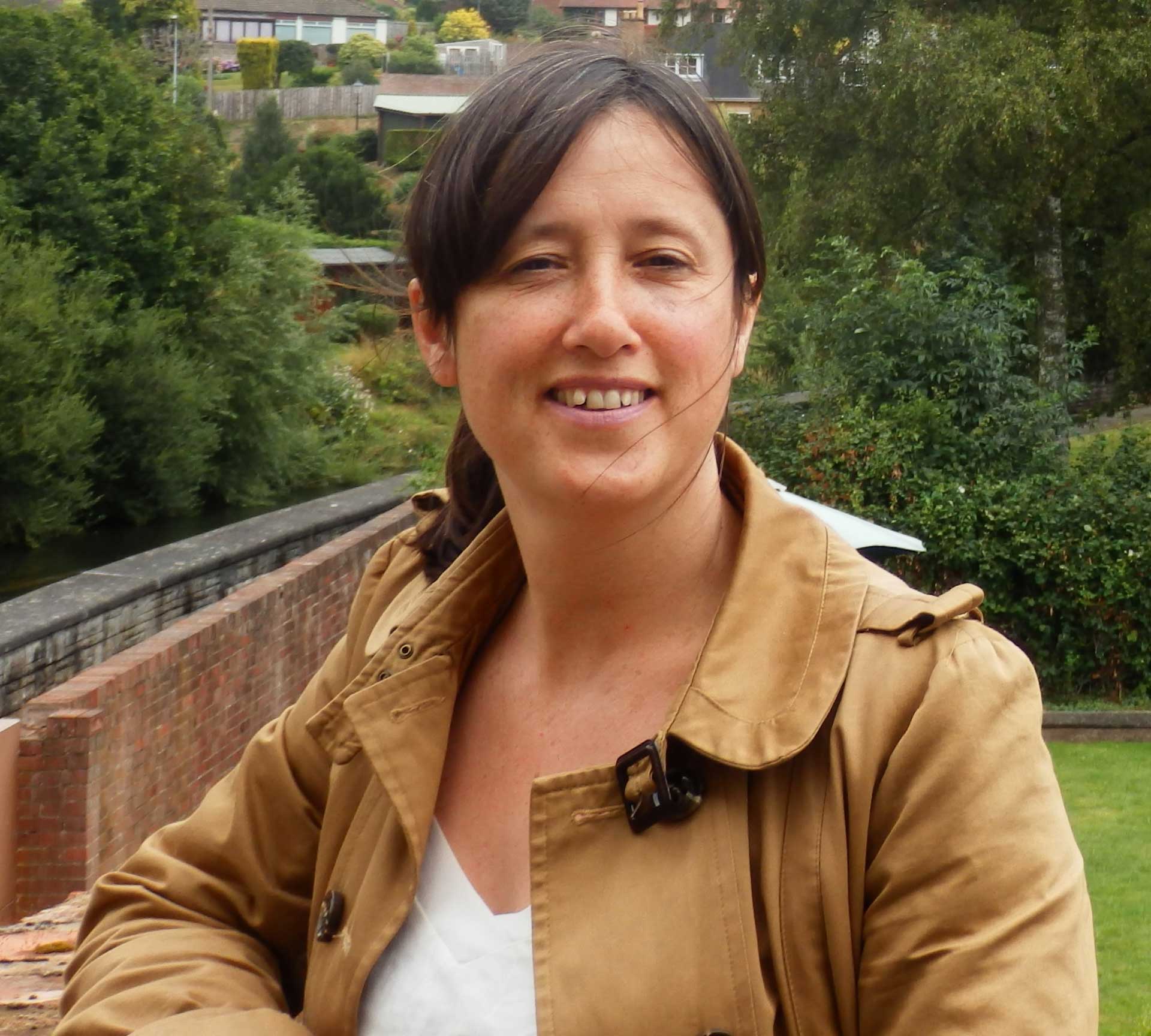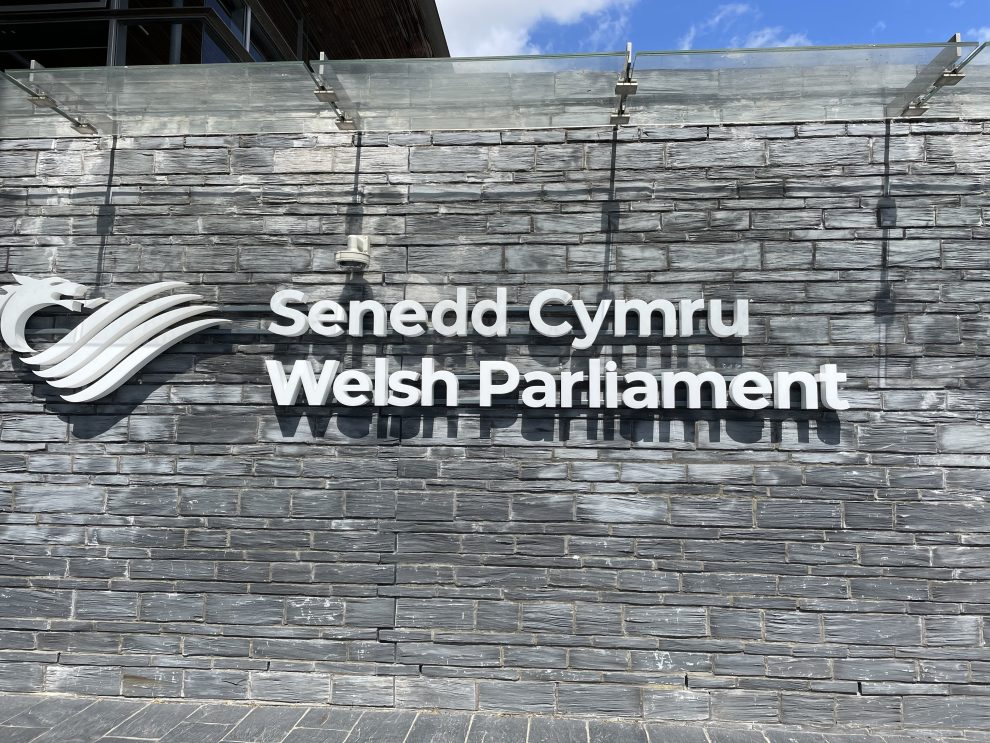Politics
Rough sleeping: millions wasted on fragmented system

‘A WASTE OF MONEY’. That’s how a hard-hitting report from Audit Wales described how local authorities, the Welsh Government, and other public bodies deal with rough-sleeping.
Audit Wales is the body which checks how public money is spent and advises the Welsh Government and other public bodies on how to make sure they get value for money.
The Audit Wales reports says that the public sector spends up to £210m reacting to rough sleeping, rather than preventing it and dealing with its causes.
Audit Wales do not say, however, that spending to tackle rough sleeping is a waste of public money. Instead, Audit Wales says the money is spent on faulty strategies which react to the problem, don’t deal with it proactively, and fail to provide good outcomes for those sleeping rough.
It says the COVID-19 pandemic is an opportunity for public bodies to start addressing weaknesses in partnership working to help tackle rough sleeping.
ROUGH SLEEPING A ‘REVOLVING DOOR’
Audit Wales’ report found, although many public bodies work with people sleeping rough, services were not always joined up and helping people when they needed it.
It found many examples of people being assisted off the streets and into temporary accommodation. Once in temporary accommodation, they did not, however, get the support they needed to address the root causes of their homelessness and often ended up back where they started.
The true extent of people sleeping rough in Wales each year is unknown.
Drawing on information from specialist charities who work with people sleeping rough, there are roughly 3,000 incidences of rough sleeping every year.
The most recent data published by the Welsh Government show the number of people sleeping rough was continuing to rise before the pandemic, increasing by 17% between November 2018 and November 2019.
Audit Wales’ research shows that people sleeping rough in later life have often experienced domestic or sexual abuse, substance misuse, been abused at home, had difficulties in school or lived in poverty from a young age.
To end rough sleeping, solutions need to address both accommodation and support needs and requires many public bodies – including, councils, the Police, health bodies, housing associations, and others – to change how they work and what they do to tackle rough sleeping.
Audit Wales says the key to tackling this problem is for public bodies to deliver a single public service response targeted at people sleeping rough.
To support that step, Audit Wales included in its report a self-reflection tool for public bodies to use to improve how they can jointly address complex needs in the future.
TIME TO ADDRESS THE ROOT CAUSES
Adrian Crompton, the Auditor General for Wales, said: “There has been a real change and emphasis on rough sleeping since the pandemic hit, with public services stepping up to help people off the streets into accommodation.
“Public services now need to capitalise on this work and deliver longer-term solutions to end people sleeping on our streets.
“I believe that for the first time in a generation, eliminating rough sleeping in Wales is a possibility. Our report sets out how we can all work towards this goal.
“Public bodies must not just focus on giving people a roof over their head, it needs all partners to work together to address the root causes of homelessness.
Frances Beecher, CEO of Llamau and Chair of End Youth Homelessness Cymru, who was a member of the Homelessness Action Group, welcomed Audit Wales’ report.
“For too long we have known that the root causes of homelessness stem from traumatic and adverse experiences in childhood.
“It is crucial that we build on the work we have done to support people sleeping rough during the Covid19 pandemic, and invest in integrated services which intervene early to prevent homelessness, rather than waiting until people reach a crisis point in their lives.
“Ending homelessness is everyone’s responsibility and if we all work together, I truly believe we have a huge opportunity to create a Wales without homelessness.”
‘A FRAGMENTED SYSTEM’
Plaid Cymru’s Shadow Minister for Transforming Public Services, Delyth Jewell MS, said: “Homelessness is the predictable consequence of years of cuts to social security, a failure to build social housing, and the continued refusal of the Welsh Government to make the necessary legislative changes such as ending priority need to ensure everyone is entitled to support when they present as homeless.
“I welcome the report from the Auditor General for Wales, which highlights the long-standing weaknesses that come from a fragmented system. However, the pandemic has revealed that when there is a will, there is a way to end homelessness. The Welsh Government’s lack of ability to effectively tackle rough sleeping before the pandemic must now be seriously called into question – they can no longer blame their lack of action on austerity, but an utter lack of will to deal with the problem in hand.
“Plaid Cymru believes that no society can legitimately call itself civilised if a person must sleep on the street. Above all, tackling this problem is a question of political will.”
FINDINGS ARE ‘A SCANDAL’
Mark Isherwood MS – the Conservative’s Shadow Minister for Local Government and Housing – said: “This is nothing short of a scandal.
“In the words of the report’s authors, some £209 million is wasted annually by the public sector reacting to, rather than preventing, rough sleeping. The report also found that services were not always joined up and people were not being helped when they needed it.
“Cited, too, were ‘many examples’ of a ‘revolving door’ for service users who were assisted off the streets and into temporary accommodation, but without the necessary support to address the root causes of their homelessness, and who often ended up back where they started.
“The crisis caused by the Covid-19 pandemic was an opportunity for public bodies to start addressing weaknesses in partnership working to help tackle rough sleeping.
“It is now crucial that the Welsh Government publishes what it will do to help homeless people once the current lockdown is eased.”
GOVERNMENT MUST BUILD ON COVID EXPERIENCE
The Chair of the Senedd’s Equality, Local Government and Communities, John Griffiths MS, commented: “This Committee has prioritised homelessness and rough sleeping. We have taken evidence and produced detailed reports with recommendations to tackle the issues involved.
“Only last week, we heard about the live challenges facing individuals experiencing or at risk of homelessness, including those sleeping rough, and the pressures on those services that provide support. We also heard about the monumental effort being made by all partners, within local authorities and the third sector to get people off the streets at the height of the pandemic. What has been achieved is significant and impressive, and we hope that this can be built upon to meet the Welsh Government’s aim of making homelessness rare, brief and unrepeated.
“I welcome the Auditor General’s report and echo his call for public services to capitalise on their response to the COVID-19 crisis through a step-change in approach, shifting resources to focus on prevention.
“Looming economic challenges that could otherwise drive more homelessness and rough sleeping make this all the more important. We will continue to hold the Welsh Government to account on this important issue in the coming months, and this report will help inform our scrutiny.”
At the outbreak of the COVID-19 pandemic, the Welsh Government and councils moved quickly to provide accommodation to rough sleepers and those in unsuitable accommodation.
Housing Minister Julie James MS said: “Getting over 800 people off the streets or away from unsuitable accommodation has not been easy but by working together we have made a big difference to the lives of these people.
“This does not, however, mean we have resolved homelessness in Wales. We have achieved a reprieve, but it remains our goal to end homelessness and we will not see people forced back onto the streets.”
THE PROBLEM WITH NIMBYS
Even with the best will in the world, local authorities, the Welsh Government and other bodies face a massive struggle to end the scourge of homelessness and rough sleeping.
In 2014, Carmarthenshire’s Planning Committee rejected plans to convert a residence n Carmarthen to house homeless armed forces veterans.
The Planning Inspectorate overturned the rejection in 2015. However, the charity behind the application decided not to proceed with the plan because of continuing hostility from those determined to house the homeless anywhere but near their properties.
During the COVID-19 pandemic, locals have complained about the use of the Silverdale Lodge, Johnston, as temporary accommodation for those made homeless by the pandemic or for rough sleepers placed there as part of controls for COVID-19’s spread.
Similar complaints have been made about a property in Fishguard which is also being used as temporary accommodation for the homeless during the COVID pandemic.
As always, the local rumour mill churns about properties being used as bail hostels or halfway houses.
While most people regard homelessness and rough sleeping as preventable tragedies, it appears that a large majority want them prevented as far away from them as possible.
News
Too many children in Wales living in poverty – Lib Dems want action

THIS week in the Senedd, the Welsh Liberal Democrats renewed their demands for the implementation of child poverty targets.
According to a report from the Bevan foundation, 29% of children living in Wales are currently experiencing poverty (an estimated 190,000 children).
The same report highlighted that the largest percentage of children living in poverty are from working households or in couple households.
The Welsh Lib Dems are now renewing calls for the Welsh Government to create a set of targets for reducing child poverty, which the party argues will allow for more accountability.
The party has previously called for the implementation of targets, citing recommendations from the Calling Time on Child Poverty Report published in November last year.
Commenting, the Leader of the Welsh Liberal Democrats Jane Dodds MS said: “The latest statistics on childhood poverty in Wales paints a very distressing image of families across the country struggling to make ends meet.
Over the course of the last six years, the proportion of children in poverty has skyrocketed. Fuelled by worsening economic conditions and a complete lack of action from both governments in Westminster and Cardiff Bay.
We cannot act complacent about these figures nor accept the clear lack of progress in fighting child poverty, behind each statistic is a child that the state has failed.
It remains painfully clear that the Welsh Government is failing to make any meaningful progress in this fight, which is why they must follow through with the implementation of clear set targets that will allow for further accountability.
We as a party have continuously called for the creation of these targets and we will not be silenced. For the sake of future generations we urge the Welsh Government to listen.”
Education
Conservative calls for academies and free schools rejected by Senedd

THE SENEDD has rejected calls to introduce free schools and academies after a report found major challenges in Wales’ education system.
Tom Giffard led a Conservative debate on educational attainment, warning that Wales is consistently at the bottom of UK-wide league tables.
The party’s new shadow education secretary pointed to an Institute for Fiscal Studies (IFS) report on education in Wales which found low outcomes and high levels of inequality.
Mr Giffard told the Senedd the IFS report highlights the pitfalls of the Welsh Government putting all its eggs in the basket of a skills-based approach.
Criticising a failure to measure skills inequalities and pupil progress, he stressed that Wales’ lower performance is due to policy and approach rather than funding or the pandemic.
He said: “It seems the Welsh Government relies on Pisa results to tell the story but then, when those same results are all too disappointing, they are dismissed in equal measure.”
Mr Giffard, who previously worked in a primary school, said declines in Pisa results can be observed in almost every country that has adopted a skills-based approach.
Raising concerns about disappointing Pisa results, the South Wales West MS pointed out that Wales saw the lowest scores in the UK for every subject.
Heledd Fychan, Plaid Cymru’s shadow education secretary, warned that Wales’ schools are understaffed and facing difficult decisions due to budgets being at breaking point.
She criticised implementation of the Welsh Government’s additional learning needs (ALN) reforms, saying schools cannot realise the aims without the budget to bring them to life.
Ms Fychan said Plaid Cymru agreed with much of the Tory motion but her party would not support calls for free schools and academies.
Sam Rowlands described the IFS report as damning, warning that the Welsh Government’s education reforms have been disastrous and have widened inequality.
The Tory MS claimed the reforms are systematically holding back disadvantaged children, saying: “The most remarkable fact is that the performance of disadvantaged children in England is either above or similar to the average for all children in Wales.”
Mr Rowlands added: “The poorest in England’s schools are doing the same or better than the Welsh average, thanks to ambition, the academies and free schools.”
Samuel Kurtz, a fellow Tory, said free schools and academies have driven up standards in England as he argued a Wales roll-out provides an opportunity to improve outcomes.
James Evans, the Conservative MS for Brecon and Radnorshire, highlighted the party’s pledge to get 5,000 more teachers into Wales’ classrooms.
Buffy Williams, the newly elected chair of the Senedd’s education committee, said Wales is undergoing a profound transformation propelled by ALN and curriculum reforms.
The Labour MS for Rhondda stressed the importance of listening to teachers and allowing ample time for the reforms to take root in classrooms across Wales.
Altaf Hussain recounted a conversation he had this week with a headteacher at one of the largest schools in his South Wales West region.
The Conservative said: “The major improvements they have been delivering to attainment and addressing behavioural issues are all at risk because of cuts to funding.
“Vital work undertaken to improve the lives of young people with additional needs could be halted because they cannot afford to continue employing the support workers.”
Lynne Neagle recognised the scale and seriousness of work still ahead to improve Wales’ education system, stressing: “I am not, in any way, complacent about that task.”
Wales’ newly appointed education secretary, who takes over from Jeremy Miles, said sustained improvement in attainment will be among her top priorities.
She told the chamber: “My early focus has been to listen closely to schools and where it is clear that schools seek more scaffolding.”
Ms Neagle said the Welsh Government will work with trade unions and employers to reduce workload and eliminate unnecessary red tape.
The Conservative motion was voted down, 14-35, following the debate on April 24. The motion as amended by the Welsh Government was agreed, 26-23.
Climate
£1m turbine application to be decided by all councillors at County Hall

A TWICE-BACKED £1m scheme for a “20-storey-high” wind turbine at a Pembrokeshire mansion will have to be decided by all councillors.
Mr and Mrs Glen Peters of Western Solar Ltd are seeking permission for a single turbine on land near the Grade II-listed Rhosygilwen Mansion, which includes an arts and functions building known as Neuaddydderwen.
Members of the April meeting of Pembrokeshire County Council’s planning committee were recommended to refuse the scheme, despite backing it at their March meeting.
This backing meant the application returned to the April meeting for ratification after a ‘cooling off’ period; the application having been deferred at the January meeting pending a site visit.
It was initially recommended for refusal in January for several reasons, including potential harm to the setting of the Grade-II-listed house and grounds, and fears of threats to the safe operation of West Wales Airport at Aberporth in neighbouring Ceredigion, some 9.5 kilometres away.
The last concern was later withdrawn.
In papers ahead of the April meeting, officers, again recommending refusal, have said the scheme “would not protect or enhance the setting [of Rhosygilwen] but rather would result in significant harm to this interest of acknowledged importance”.
They have also warned any backing of the scheme against policy recommendations could set a precedent for similar developments.
-

 News7 days ago
News7 days agoPolice issue update on the search for Luke, missing from Pembroke Dock
-

 News2 days ago
News2 days agoPolice and air ambulances at ‘serious incident’ at West Wales school
-

 News6 days ago
News6 days ago20mph U-turn: Some roads will return to 30mph following public outcry
-

 Community6 days ago
Community6 days agoMiracle pup finds her forever home after heart-wrenching journey
-

 Crime2 days ago
Crime2 days agoPembrokeshire pensioner accused of 17 sexual offences against children
-

 Crime20 hours ago
Crime20 hours agoAll three school stabbing victims discharged from hospital, police confirm
-

 Community3 days ago
Community3 days agoCounty Hall to offer space for community banking
-

 Crime4 days ago
Crime4 days agoBrian Davis: Wanted on suspicion of commercial burglary























